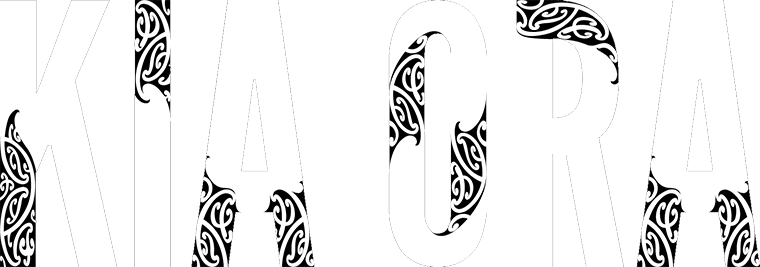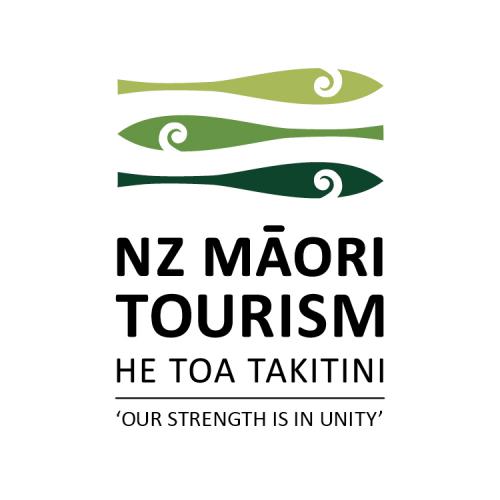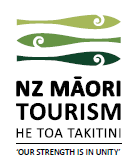28 February 2022
In this Pānui:
- Tumu Whakawātea
- COVID Support Payment
- Small Business Cashflow Scheme changes
- Remittance of penalties and interest
- Phase 3: What you need to know
- Firearm's licence for tourism/hospo
- TIA Photo Competition
Tumu Whakawātea
Tumu Whakawātea takes place this Friday, 7am to 7:45am. A great way to stay connected and grounded by listening to the stories of our tīpuna from rangatira across the motu: Dr Tom Roa, Dr Hiria Hape, Professor Taiarahia Black, Matua Tei Nohotima, Supreme Judge Ta Joe Williams, Ngarimu Parata. Tune in 7am on Friday here: https://us02web.zoom.us/j/85258421309
COVID Support Payment
Applications for the first COVID Support Payment (CSP) open today, Monday 28 February 2022. You can apply here.
The new support payment is available to businesses which have experienced a 40% or more drop in revenue because of COVID-19, or the legislative public health measures taken to reduce the spread of COVID-19 in the community.
To be eligible, a business or organisation must:
- have experienced revenue decline of 40% or more as a result of COVID-19
- have been operating the business or organisation for at least 1 month before 16 February 2022 (Note: if you have acquired a business or organisation after 16 January 2022, you may still be eligible for the CSP. See below)
- have taken all reasonably practicable steps (if any) to minimise revenue losses
- have been operating in compliance with the COVID-19 Vaccine Certificate requirements (pursuant to COVID-19 Public Health Response (Protection Framework) Order 2021), for both the comparator period and the affected revenue period
- not have received, have an application pending for, or apply for or receive in future, a grant under the Cultural Sector Emergency Relief Fund: Grant for Self- Employed Individuals administered by Manatū Taonga - Ministry for Culture and Heritage (further details on this will be provided soon)
- be living, or (if a non-natural person) registered or otherwise established in New Zealand.
Payments
Each COVID Support Payment is $4000 per business plus $400 per full-time employee.
It is capped at 50 FTEs or $24,000 - this is the same rate as the most recent Transition Payment.
You will be asked to show a 40 per cent drop in seven consecutive days within the six weeks prior to the shift to Phase 2 of the Omicron response. This period is from 5 January 2022 to 15 February 2022.
You must compare this seven-day period with seven days after 16 February, to show there has been a decrease of 40% in revenue. Payments will start from March 1.
For those who experienced a quiet January / early Feb and will not qualify, the Government has announced an alternative option of 5 January 2021 to 15 February 2021. The alternative option covers a period when all of New Zealand was at Alert Level 1.
However, the alternative option is not available at this stage. Inland Revenue will need to make the changes in their system, and this is expected to be ready 14 March.
The first payment will remain open for six weeks, so you have time to apply for the alternative option in two weeks' time.
The COVID Support Payment is three payments in total, and you will need to apply for all three. The dates for the last two payments have not yet been released.
If your business or organisation is part of a commonly owned group, the 40% revenue drop needs to be satisfied by you and by the group as a whole.
Recently acquired businesses
Businesses that changed ownership after 16 January 2022 may still be able to apply for a CSP.
To get a CSP, the business:
- needs to meet the CSP criteria.
- must have been operating for at least 1 month before 16 February 2022.
- activity must remain largely the same as before the change in ownership.
Pre-revenue businesses or organisations
If your business or organisation has taken active steps towards being market ready but has not yet begun trading, you may be eligible for the CSP. A pre-revenue business or organisation may be eligible if both of the following apply.
- They have had a minimum 40% drop in their ability to raise capital over a 7-day affected revenue period (7 days in a row) as a result of 1 or more COVID-19 circumstances.
- They meet the other CSP eligibility criteria.
Small Business Cashflow Scheme (SBCS) changes
The following changes will be made to the SBCS before the end of March:
Base loan amount increased
The SBCS base loan will be increased to $20,000 (from $10,000). This means the amount that can be borrowed will be $20,000, plus $1,800 per full-time equivalent employee (up to 50 employees). The loan repayment period remains 5 years (60 months).
Interest-free period
The first 2 years of existing loans will become interest-free provided the loan is not in default. Interest will apply at a rate of 3% per year on the remaining loan balance from year 3.
Existing borrowers can get a top-up loan
Existing borrowers who already have a loan (and have not defaulted on this loan) will be able to apply for a top-up loan. They can borrow an additional $10,000 plus any amount they did not borrow in their initial loan. The top up loan can be drawn down as a lump-sum or as up to 4 smaller instalments over time before the end of the scheme on 31 December 2023.
A borrower who receives a top-up loan will have 2 separate loans, each with their own 5-year loan term and 2-year interest-free period. For example:
- first SBCS loan - interest-free for 2 years from the date the original loan was made available to them
- top-up loan - interest-free for 2 years from the date of the first draw down. Any additional draw downs after this will not start a new interest-free period.
New loans
New SBCS borrowers, and those that have already paid back their loan in full before 31 December 2023, can borrow up to the new maximum amount as a lump sum or as up to 4 instalments before the end of the scheme. The first 2 years of the loan will be interest-free from the date the loan is made available to them (further draw downs do not start a new interest-free period).
The SCBS is open till 31 December 2023.
Customers can apply for the SBCS and the top-up loan in their myIR account at ird.govt.nz/sbcs
Remittance of penalties and interest
Inland Revenue can remit interest if a business is late paying its tax because they are adversely affected by COVID-19. You should call Inland Revenue and let them know.
Penalties and interest can be remitted for tax payments due on or after 14 February 2020 up until 24 March 2022 (including provisional tax). This will soon be extended to 7 April 2024. The best way for customers to take advantage of this is to set up an instalment arrangement in their myIR account at ird.govt.nz or call them on 0800 227 774.
Via the link, click the 'I want to' tab, then 'Request an instalment arrangement' (Under Payments, refunds and returns).
You should also tick the box to say your business has been affected by COVID-19. Doing this confirms that you’re letting Inland Revenue know as soon as you reasonably can that you cannot pay on time because you are adversely affected by COVID-19. It also confirms you will pay the original amount as soon as you reasonably can.
To reduce interest charges, the original amount must be paid in full by 7 April 2024. If it is not, you will be charged interest for any outstanding amount from the original due date.
If you are not able to set up a reasonable payment plan or keep to the terms of the one you’ve already set up, you should discuss this with Inland Revenue. It may be possible to renegotiate the payment terms, delay the start of a payment plan to a later date, or write off a part of the tax.
Phase 3 – What you need to know
- Only confirmed cases and their household contacts are required to isolate.
- All other contacts are now asked to monitor symptoms but do not have to isolate.
- Confirmed cases and household contacts should isolate for 10 days but can now self-release after day 10, provided they have no new or worsening symptoms and meet any testing requirements.
- The critical worker exemption scheme announced this month will enable eligible household contacts to return to work during their isolation periods by returning a daily negative RAT.
When should you get a COVID test?
- If you are unwell - even with minor cold symptoms, a runny nose or slightly sore throat - stay home. Get a COVID test. Even if it is negative, stay home until you are symptom-free.
- If a household member tests positive for COVID, isolate at home and be tested (Day 3 and Day 10 if you’re asymptomatic, and immediately if or when you develop symptoms.)
- If public health or your hospital doctor has told you to get a test for pre-admission.
Reporting results
If you test positive with a Rapid Antigen Test (RAT), it is important you report your positive test result. You don’t need to have a PCR test to confirm.
Please update your My Covid Record https://mycovidrecord.health.nz/ with your result. Call 0800 222 478, option 3, if you need any support to do that.
Useful links from the Ministry of Health:
COVID-19 Testing Guidance (pdf)
How to use a Rapid Antigen Test (pdf)

Firearms Dealer’s licence requirements for hospitality and tourism
Businesses that use firearms - hiring, lending or otherwise supplying arms items - may be required to obtain a firearms dealer's licence.
Amendments enacted under the Arms Legislation Act that took effect on 24 June 2021 have expanded the types of activities requiring a firearms dealer’s licence to include those in the business of hiring, lending or otherwise supplying arms items.
This includes commercial activity or experience operators where firearms are supplied for use in hospitality, tourism or other leisure business activities.
Under the new firearms regime operators:
- May also need to have land used for shooting activities certified as a Shooting Range: These requirements take effect in June 2022, and operators will have 12 months, until June 2023, to make an application. Further details on these criteria will be provided in early 2022.
- Can use the Police self-assessment tool to work out if they are required to obtain a dealer’s licence, and/or have land certified as a Shooting Range.
- Should take note that, while Shooting Club or commercial hunting activities are exempt from requiring a dealer’s licence, any operators which also provide other shooting experience activities are required to obtain one. See the self-assessment tool for clarity.
Police are conscious that due to COVID restrictions and subsequent business operation challenges, many operators may not be aware of these new requirements and are yet to comply.
Therefore, Police will work with all operators to submit a dealer’s licence application and is providing an extended application period to 30 April 2022. They are expected to be otherwise compliant with firearms laws during this time. For FAQs, click here.
TIA Photo Competition
Tourism Industry Aotearoa is hosting its annual photo competition. This is a great opportunity to get creative and generate some fantastic, high-profile exposure for your tourism operation.
This year’s theme is ‘whanaungatanga’, focusing on relationships, kinship and a sense of connection. It’s about the connections created through shared experiences and working together, which provide us with a sense of belonging.
Read more here.
Entries close Friday 11 March
- Facebook voting for People's Choice runs until 4pm, Thursday 17 March
- Winning photos announced in Te Aka Tāpoi (T-Mail) on Friday 18 March.
Ngā manaakitanga,
NZ Māori Tourism



